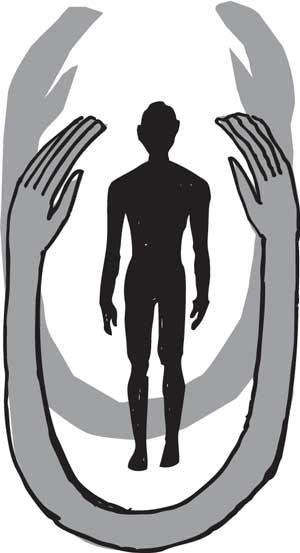Reply To:
Name - Reply Comment
Essentially, a good human being is not selfish or self-centred but other-centred and ready to share and care for others, mainly the millions of people caught up in the poverty trap. While some look at or judge by outward actions or appearances, it is vital to know what is in our heart—our motives and attitudes. Good human beings are ready to love, forgive—show compassion and mercy towards others, instead of retaliating when someone does harm to us. We are called upon to love our enemies, bless those who curse us, help those who hurt us and pray for those who persecute us. It is an inner transformation that is required. Then the virtues and values that come from us will be fruitful and long lasting.

It is with such reflections in mind that we cooperate with the United Nations in marking World Humanitarian Day on Wednesday August 19. With the COVID-19 pandemic leaving millions dead or afflicted and their families suffering mental agony for weeks and months, this year’s World Humanitarian Day theme will be, “Providing life-saving support during the pandemic”.
In a statement, the UN says we need to honour humanitarian workers killed or injured in the course of their work. We also need to honour health workers who continue, despite the odds, to provide life-saving support and protection to people most in need.
Aid workers are overcoming unprecedented hurdles to assist people in humanitarian crises in 54 countries and in a further nine countries which have been catapulted into humanitarian need by the COVID-19 pandemic. This day was designated in memory of the August 19, 2003 bomb attack on the Canal Hotel in the Iraqi capital Baghdad. The attack killed 22 people, including Iraq’s chief humanitarian activist Sergio Vieira de Mello.
This year, the UN is paying special tribute to the real-life heroes who have committed their lives to helping others. COVID-19 has been the biggest challenge to humanitarian operations the world-over. The lack of access and restrictions placed by various Governments have resulted in communities, civil society and local NGOs being the frontline of the response. Therefore, the campaign presents the inspiring personal stories of humanitarians who are treating patients and curbing COVID-19, providing food to vulnerable people, providing safe spaces for women and girls in lock-down, delivering babies, fighting locusts and running refugee camps,
the UN says.
One of the heroes is Umra Omar, from the Lamu archipelago in Kenya. She is the founder of Safari Doctors, a mobile doctors unit that provides free basic medical care to hundreds of people every month from more than 17 villages in Lamu. Indeed we say she is a good example for our medical doctors, especially in private practice and private hospitals which have become big business at the expense of patients.
According to the UN, while modern healthcare is modeled on urban realities, 70% of Kenya’s population lives in remote areas. A key perspective shift was not seeing healthcare as static, but something that could actually reach out to the people in need.
In 2020, nearly 168 million people will need humanitarian assistance and protection. This represents one in about 45 people in the world and is the highest figure in decades. The UN and partner organisations aim to assist nearly 109 million of the most vulnerable people. This will require funding of $28.8 billion.The situation will keep getting worse unless climate change and the root causes of conflict are better addressed, the UN says. On current trends, projections show that more than 200 million people could be in need of assistance by 2022.
Some countries are spending hundreds of billions of dollars on weapons of war and redesigning their nuclear capabilities by using new technology. Analysts say the United States and Russia have nuclear weapons that are about 50,000 times more powerful than the atom bombs dropped on Hiroshima and Nagasaki. Spending billions on such weapons is immoral and outrageous in an unjust economic situation where ten super billionaires are known to own or control more than 70 per cent of the world’s wealth and resources. This is why the highest priority needs to be given to poverty alleviation, the battle against climate change, nuclear disarmament and peaceful conflict-resolution through dialogue instead of war or violence. Then only will the world become more human and World Humanitarian Day will have more significance and transform the world to bring about racial equality and social justice.